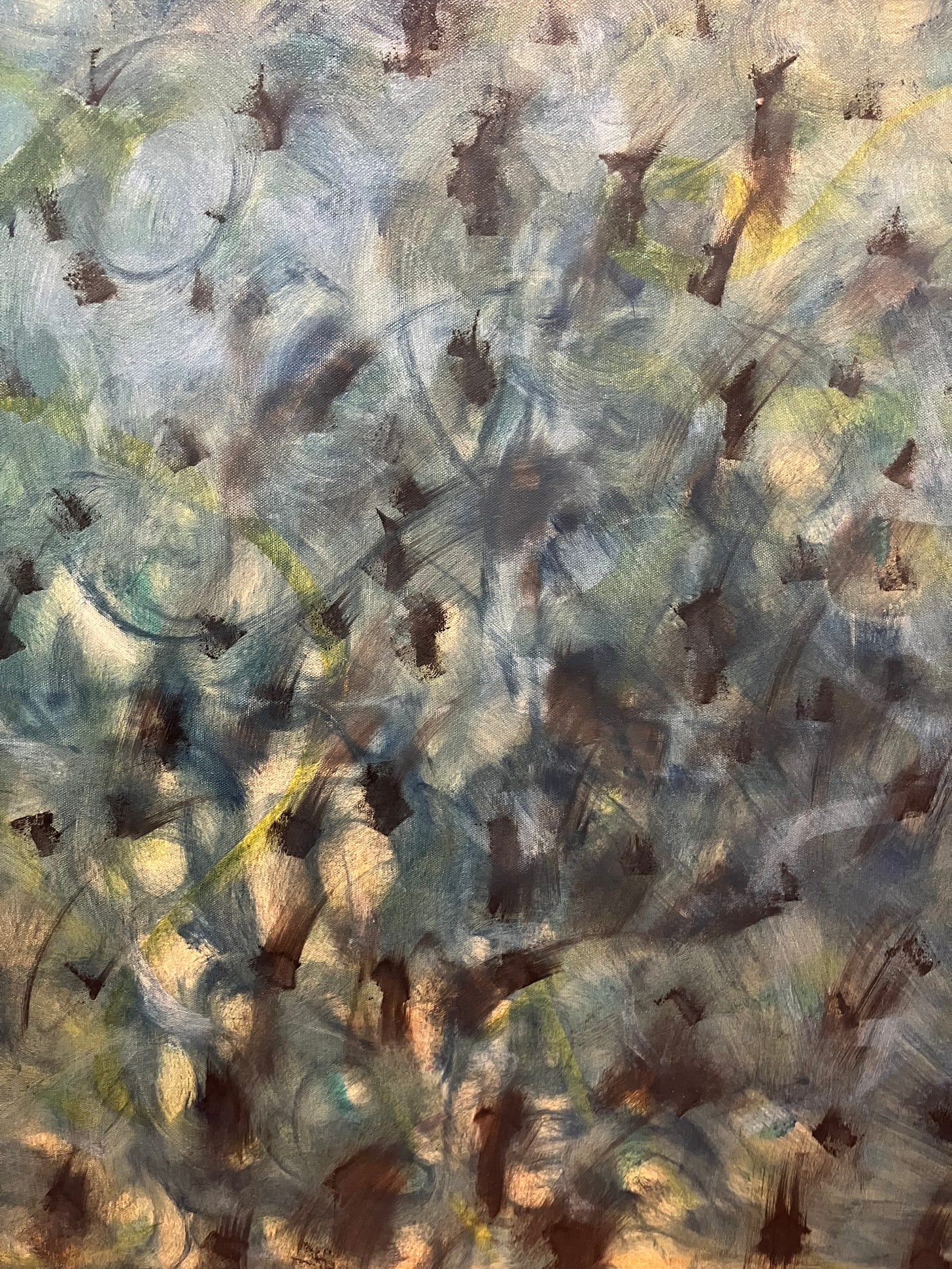When I was 4, I attended preschool in Knoxville, TN, which was my first real exposure to other children. My parents were Greek immigrants from Cyprus and only spoke to me in Greek. The experience left me shocked and later traumatized by what I now know was selective mutism, though no one understood it at the time. I was alarmingly quiet throughout my childhood, teen years, and early adulthood, often labeled as shy. My parents had no idea, as I was social and talkative at home.
The event that triggered the trauma can be summed up in one word—paint. At 4 years old, we were given paintbrushes, canvases, and easels. What could go wrong? I found myself walking in paint, leaving footprints all over the classroom floor. My teacher blamed me for spilling the paint, but I knew it wasn’t me. Still, I had tracked it everywhere, and that caused me to feel deep shame. My efforts to communicate up until that point had been difficult, as I often mixed up Greek and English. Simple prompts like "Good morning, teacher" would come out wrong. I remember one day walking proudly up to greet my teacher, only to leave with my head hanging low, crippled by anxiety. It wasn’t because I was shy or introverted, but because I had a communication barrier.
When the world shut down, and I was called to paint again, I hadn’t realized the trauma I needed to work through. It was a challenge, and emotions flooded me as I came to terms with how deeply that one childhood event had affected me. But in working through the discomfort and fear, I tapped into an amazing virtue—courage. To this day, it takes courage for me to paint, just as it does to speak. Over time, I began to speak more, first in one-on-one settings and then in groups I facilitated, where I felt confident. But standing in front of an audience? I would tremble. Now, I speak with ease.
"Becoming a creature of discomfort can unlock hidden potential in many different types of learning. Summoning the nerve to face discomfort is a character skill—an especially important form of determination. It takes three kinds of courage: to abandon your tried-and-true methods, to put yourself in the ring before you feel ready, and to make more mistakes than others make attempts. The best way to accelerate growth is to embrace, seek, and amplify discomfort."
―Adam M. Grant
Invest in Life Skills for Leadership and unlock essential personal and professional growth tools. With access to 700+ articles, podcasts, and videos on leadership, emotional intelligence, burnout prevention, and more, you'll develop skills that AI can't replace.
Why It Matters
In today’s AI-driven world, creativity, emotional intelligence, and ethical decision-making are vital. This subscription helps you stay ahead with these irreplaceable skills.
What It Can Do
Gain practical strategies to prevent burnout, improve communication, and boost team productivity, fostering both personal and workplace success.
Subscribe now to lead with purpose and drive real transformation in your life and career.




